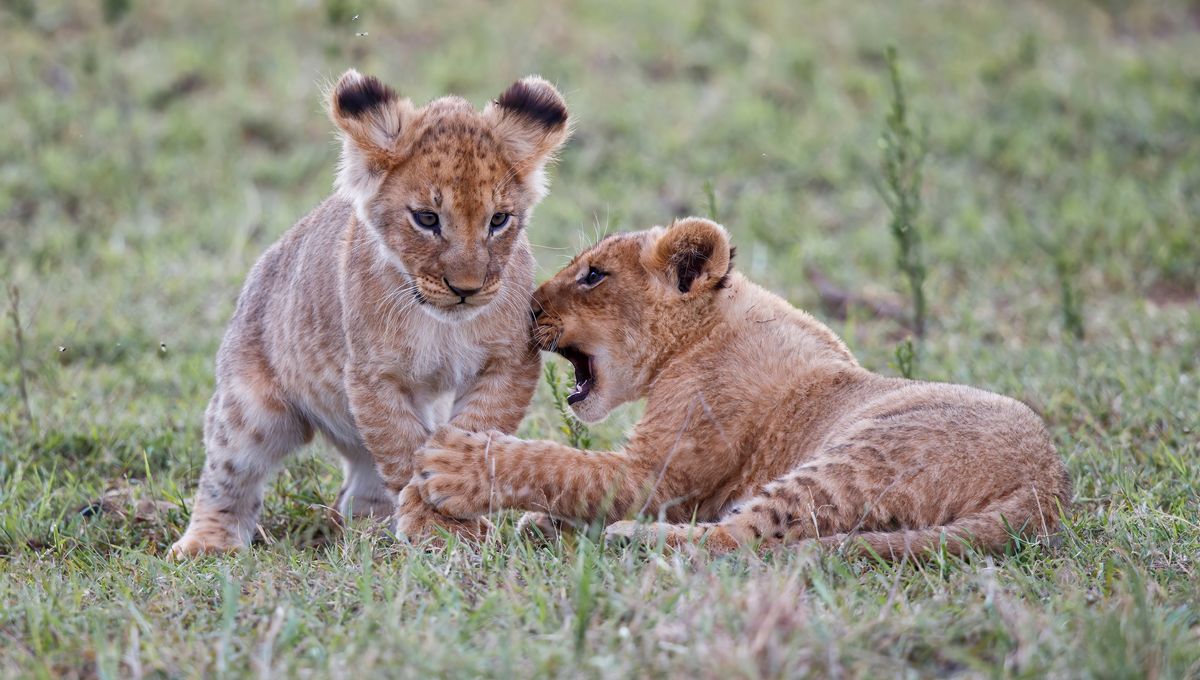
Have you seen the Barbary lion cubs born at a Czech zoo recently? Besides their size and enviable energy levels, there’s something that clearly sets them apart from their parents: they’ve got spots.
It’s not a feature unique to this population of lions in particular – spots can be seen on all young lion cubs, despite what baby Simba’s plain-coated appearance in the original version of The Lion King might lead us to believe (granted, they did fix that with the 2019 remake).
While an adult lion might be seen with a few faint spots on their legs or belly, for the most part, a cub’s spots gradually fade away as they mature. But why do they even have them in the first place?
“It’s all to do with camouflage,” explains The Big Cat Sanctuary. “Imagine a lion cub playing ‘hide and seek’ in the tall grass of the African plains. These spots act like the ultimate disguise, helping them blend in seamlessly with their surroundings.”
But while it might provide an advantage during play, the cubs’ spotty coats are primarily a feature that increases the chances of their survival.
“When the cubs are young, [their] mum will often go off to hunt, leaving them hidden in bushes or long grass. The spots break up the solid coat pattern, giving the illusion of dappled shadows, providing the ultimate disguise from opportunistic predators,” says The Big Cat Sanctuary.
Once they’re older and more able to defend themselves, there’s no longer any need for the added camouflage. A big ol’ roar should be enough to send any animal daft enough to try and sneak up on a lion scarpering in the other direction.
Lions aren’t the only ones with spots that disappear, either. It’s a trait that also pops up in cougars (Puma concolor) – which, despite being known as “mountain lions”, aren’t actually closely related to lions. In this case, spots help cougar cubs stay hidden amongst the grassy and brush habitats of their wide-spanning range. Like lions, their spotty coats fade with maturity, typically at around six months old.
Elsewhere in the Felidae family, spotted coats aren’t always so predictable. Take cheetahs – they’re always spotty, right? Well, the king cheetah proves otherwise. Rather than the classic roughly rounded black spots you might typically expect of these big cats, king cheetahs instead sport a blotchy coat pattern, consisting of elongated and merged spots, and thick stripes along their spines.
So different was their appearance to regular cheetahs that some people initially thought they were a hybrid, or even an entirely different species.
Source Link: Why Do Lion Cubs Have Spots?